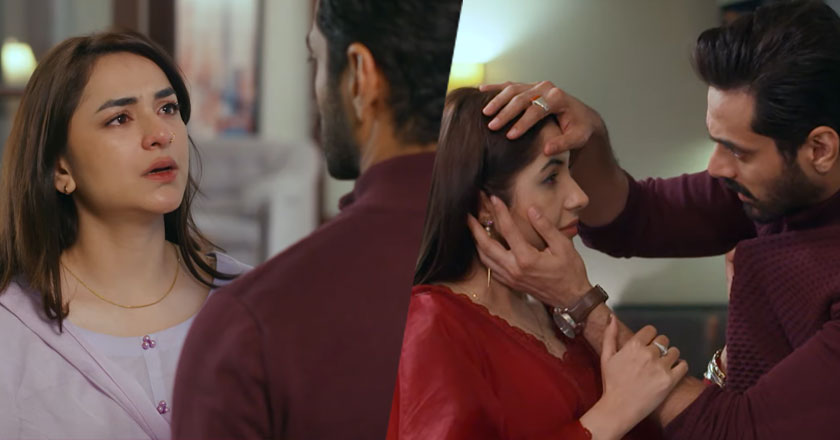Pakistani drama ‘Tere Bin’ starring Yumna Zaidi and Wahaj Ali has been in the spotlight for a while now for a number of reasons.
First and foremost, the sizzling love-hate chemistry between the leads has everyone enticed. It is really nice to see that Murtasim (Wahaj Ali) has a softie hidden inside his hard shell.
The second time around ‘Tere Bin’ was compared to an Indian show called ‘Iss Pyaar Ko Kya Naam Dun’ which was also a major success. In the Indian show, the leads also have a hard time seeing each other eye-to-eye until they finally fell for one another.
Then came along Zee Music which tried to take copyright claims over Tere Bin’s OST claiming that it is originally theirs and is composed by Shani Arshad and a copy of the song Thukra Ke Mera Pyar.
Tere Bin Drama Review: A Concoction of Egos, Narcissism and Misogyny
Of course, we can’t leave out the famous Shawl that is not being sold online too!
Last but not the least, the drama serial has once again become the talk of the tow, but this time the topic is a bit different. For those of you who haven’t been following the TV show, Murtasim (Wahaj Ali) is married to Yumna Zaidi’s character.
However, he has a cousin, Haya (Sabeena Farooq) who lives with him and has always been head over heels for him, believing that his wife is not good enough and can never understand his needs as she can.
So, as a vamp would usually do, she creates certain circumstances which have started to create a rift between Murtasim and Meerab (Yumna Zaidi).
Why ‘Tere Bin’ Should Steer Clear of Cliche ‘Doubt’ Narrative
We have seen the classic and cliche ‘mujhe shaq hai’ scenario time and time again, however, it is important for the cast and crew of Tere Bin to open their eyes to something extremely important.
The drama is a hit and now a major sensation with hundreds of thousands of viewers following and talking about it, but, showing misunderstandings that turn ugly and chaotic is feeding the wrong message to the masses.
Television is the biggest method of communication, because of the frequency of content being consumed through it and online, Pakistanis are highly influenced by content, especially the youth.
Show such sensitive topics with serious consequences should be portrayed in a very sensitive manner. We understand that this part is crucial for the story to move forth, but we do request all directors and producers be mindful of the impact it has on countless families.
3 Ways Ahsan Khan’s Drama ‘Hum Dono’ is Breaking Gender Stereotypes
Share your thoughts in the comments below.
Stay tuned to WOW360.
